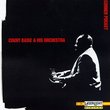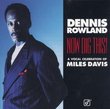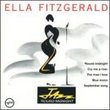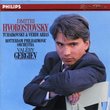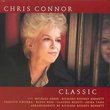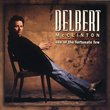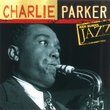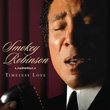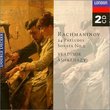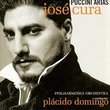| All Artists: Vincenzo Bellini, Arrigo Boito, Umberto Giordano, Amilcare Ponchielli, Giacomo Puccini, Giuseppe Verdi, Bruno Bartoletti, Oliviero de Fabritiis, Peter Maag, Riccardo Chailly, Richard Bonynge, Zubin Mehta, London Philharmonic Orchestra, National Philharmonic Orchestra, Welsh National Opera Orchestra, Montserrat Caballé, Luciano Pavarotti, Agnes Baltsa, Giuseppe Morresi, Sherrill Milnes Title: The Great Voice of Montserrat Caballé Members Wishing: 0 Total Copies: 0 Label: Decca Import Release Date: 9/12/2000 Album Type: Import Genres: Soundtracks, Classical Style: Opera & Classical Vocal Number of Discs: 1 SwapaCD Credits: 1 UPC: 028945823126 |
Search - Vincenzo Bellini, Arrigo Boito, Umberto Giordano :: The Great Voice of Montserrat Caballé
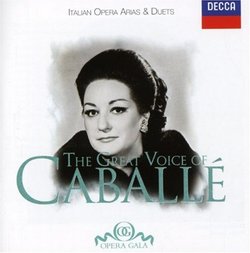 | Vincenzo Bellini, Arrigo Boito, Umberto Giordano The Great Voice of Montserrat Caballé Genres: Soundtracks, Classical
|
Larger Image |
CD DetailsSimilarly Requested CDs
|
CD ReviewsWide-ranging selection of great singing Matteo | Oakland, CA United States | 12/13/2000 (4 out of 5 stars) "This admirable disc brings together snip-its from Caballe's full-length recordings made for Decca from the early 70's and the early/mid 1980's. This is important because we get a taste of the singer's output during her vocal prime and her mature years, between which time her voice obviously (and naturally) changed. The disk is also a fabulous sampler of Italian opera from the "biggies" of Bellini and Puccini to the rarer Verdi opera and rarer still work by Boito.The selections from "Luisa Miller" and "Turandot" show off the vocal lushness of the younger Caballe, and expose her wonderful attention to musical detail. The final moments of the "Luisa" trio are magnificent with Caballe floating a beautiful, silvery high note over the wonderful Pavarotti and Milnes. The selections from "Turandot", while oddly enough not my favorite (the vibrato is a little wobbly for my taste), are still musically sound.What is the most interesting facet of this disk is that her mature voice is captured, a voice that became heavier with age, more dramatic (during this period she went on the record a disc of Wagner arias that included Isolde and Brunnhilde with Zubin Mehta with CBS Records). I would not have thought that assuming the role of Adalgisa would work, but it does. Her mature voice is luxurious and spot-on in terms of hitting notes. The same goes for the selections from "Andrea Chenier"; while the solo aria ("La mamma morta") is not her best recording, there is something quite stirring about it and is probably the best interpretation I have heard (though I have yet to hear Scotto's). The duet with Pavarotti is golden. The selections from "Mefistofele", though not always flattering to the voice, are still fascinating. Also we get to hear her hit a rare E-flat.The best singing from this mature period comes in the selections from "La Giaconda", where the voice is at its best and clearest. (the minor exception is a little wobbliness in the "Suicidio!"). Otherwise the singing is radiant, sure-footed, and characterful, with a silvery edge to the instrument that is exciting. The scene with Pavarotti ("Il mio braccio") is stunning, with the power of Caballe's voice proving to be a marvel.Other contributions are also quite good. All of the operas in the collection were recorded with Pavarotti (though he does not appear in the selections from "Turandot") and he is a mellifluous if a bit characterless addition to the line-up. His turn in Luisa Miller is particularly beautiful. Agnes Baltsa is simply terrific in the Giaconda/Laura duet from "La Giaconda". In all instances the conducting is expert.Overall a great disc for fans of the great Spanish soprano and a great sampling of Italian opera from the bel canto to the late Romantic period. For musicianship, there are few better than Caballe and if nothing else, this set is a superb example of her committment to craft." SEPULCHRAL SUBLIMNITY Shawn Chua | Singapore | 05/31/2001 (5 out of 5 stars) "Representative of Montserrat Caballe's recordings for the Decca catalogue, this album features arias, duets and scenes from many staples of the repertoire. While not exactly familiar favourites or starter-kits, these operas none the less have great music that we would be the worse off, without.Caballe's legendary breath control and floated pianissimi are more or less expected and we are justly rewarded in this present selection. In many of the set pieces, she astounds us with the above qualities and justly shows her mettle and that her fame and celebrity was not without reason.I simply love the scene from Norma which is featured here. As Adalgisa this time round (she recorded the role of Norma earlier in her career for RCA), she agreed to the role as a mark of respect for and friendship with Sutherland. While many were sceptical of the results initially, due to the advanced stage of her career when she was recording it, the results are top-notch.She spins her notes with a delicacy and intrigue unlike no other as she is soon joined by the bright clarion voice of Pavarotti as Pollione. Caballe is one of the few soprano Adalgisas recorded and she excels in the scene, matching and even stealing the show from Pavarotti.In the arias from Turandot, Signore, ascolta and Tu che di gel sei cinta, she displays her breath control and pianissimi when she seemingly sings the arias in just a matter of a few breaths. The melody goes on and on and is hardly interrupted by intakes of breaths. She holds on to the dying last note Signore, ascolta for almost an eternity. The result may be less than perfect but is still remarkable.In Andrea Chenier and La Gioconda, Caballe lets rip and shows us how powerful her voice can be. La mamma morta is touching and well sung, with an intensity that is unmatched. Perhaps she even betters Callas. In her voice, we can picture the fire that is burning in the narrative she is giving. Suicidio is no less captivating. From the start, she throws down the gauntlet with a benchmark reading that is both dramtically and musically correct.In a nutshell, this is an album to get for any lover of the soprano repertoire and especially for lovers of great singing and of Caballe." The decca tribute to Montserrat Caballe Shawn Chua | 08/05/2001 (4 out of 5 stars) "This is one of Caballe?s great collections. She is one of the three vocal wonders in the world of opera, the other two being Renata Tebaldi and Victoria De Los Angeles (Caballe herself regarded Tebaldi?s as the most perfect voice ever to be heard and Tebaldi considered Caballe the last true diva).Most of Caballe?s decca recordings were made later in her carreer (late 70s-80s). Even if the voice had lost some of its freshness and flexibility, she still managed to give great performances. Such examples are her Margherita in Mefistofele, her Maddalena in Andrea Chenier and her Gioconda. To me, Tebaldi?s vocal caliber, pathos and beauty are unsurpassed in her recordings of the same roles but Caballe gives these roles her own touch, so different but not less memorable. Her Adalgisa, a role rarely performed by a soprano, is among the finest on records. Having heard Horne, Cossotto and other sublime mezzos in this role, I realise now that it?s Caballe?s phrasing, gentle singing that I like the most. Let me not forget her lovely Luisa Miller. Her best moment on this set is her Liu. Recorded in 1972, displays Caballe?s famous pianissimo, amazing breath control at their finest. One believes that this woman needs no air at all! If only, we could hear such singing by the new operatic generation today!Concluding, this may not be Caballe?s best collection (her best are available on amazon) but this one is certainly worth listening."
|

 Track Listings (17) - Disc #1
Track Listings (17) - Disc #1